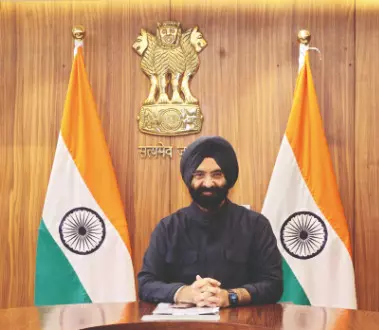Delhi’s first artificial rain trial postponed

New Delhi: Delhi’s much-anticipated first artificial rain experiment, aimed at combating air pollution through cloud-seeding technology, has been postponed once again due to unsuitable weather conditions. Officials said the aircraft equipped with the required cloud-seeding apparatus remains stationed in Meerut, ready for deployment as soon as conditions improve.
Environment Minister Manjinder Singh Sirsa, accompanied by officials from the environment department and a technical team from the Indian Institute of Technology (IIT) Kanpur, inspected the aircraft on Monday to review the arrangements. “The trial could be conducted any day once the India Meteorological Department (IMD) confirms a clear-weather window,” Sirsa said. “As soon as we get the signal that there will be no rain, the trial will be carried out.”
The exercise, originally scheduled for this week, had to be postponed after Delhi received intermittent rainfall triggered by a western disturbance. The minister explained that the presence of moisture and natural rainfall could distort experimental results. “We want to carry out the experiment under dry and stable weather conditions to obtain accurate data,” Sirsa said. “Although rain was forecast earlier, we
want to ensure the experiment is conducted in a scientifically sound manner.” The Delhi government, in collaboration with IIT Kanpur, is spearheading the project to evaluate whether cloud-seeding can effectively reduce air pollution and smog levels in the city during winter. The initiative, supported by 23 departments including the Directorate General of Civil Aviation (DGCA), has received the necessary clearances and funding. IIT Kanpur will execute the trials using its Cessna 206-H aircraft. Officials said five trials are planned in northwest Delhi as part of a larger study to assess the viability of the technique.
Earlier attempts were deferred due to active monsoon conditions, which made it difficult to differentiate between natural and induced rainfall. The DGCA has authorised operations between October 1 and November 30 under strict safety and visual flight rules.
Initially expected to begin between October 7 and 9, the experiment was delayed after the IMD predicted thunderstorms in the region. The project had also faced earlier postponements in July and August because of unfavourable weather.
“The objective is to explore cloud-seeding as a potential tool to combat Delhi’s severe winter pollution,” Sirsa said, adding that the government
would only proceed once meteorological experts confirm conducive conditions.



